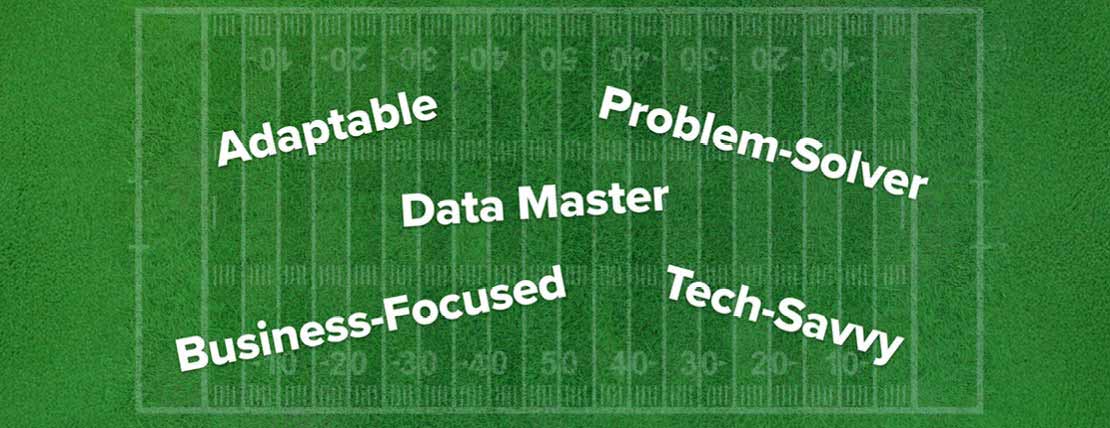For WorldatWork Members
- The Future of the Rewards Profession: Let the Sleeping Beauty Rise, Journal of Total Rewards article
- The Future of Work and Rewards, research
For Everyone
- Essentials of Compensation Management, course
- Creating Impact Through Total Rewards, course
- Certified Compensation Professional, certification
- A New Era in Total Rewards: Key Components of a Mature Strategy, on-demand webinar
- Total Rewards ’25, conference
If you were suddenly tasked with building a winning team of total rewards (TR) professionals from scratch, what skills would you consider the most important, timely and relevant for them to possess?
First, consider the current class of TR talent: those who may be looking to get into the field, those who are currently taking classes toward making this their profession or even those already in an organization’s HR department but in a different role.
When considering that varied class of talent, organizations typically try to identify what they need and what is of value — and what candidates could become prime-time players. In doing so, it’s like aiming at a constantly moving target, said Sue Holloway, a compensation content director at WorldatWork.
While a solid understanding of basic math, statistics and data interpretation — as well as proficiency with spreadsheets — were once sufficient for entry-level jobs, she said, the focus has now shifted toward more advanced analytics capabilities.
“Today, there is a growing emphasis on the ability to assess complex data and use it to make strategic recommendations,” Holloway said. “In particular, modeling skills are becoming increasingly important, especially when developing incentive plans and conducting pay equity analysis using regression techniques.”
The demand for TR professionals who can analyze and make sense of complex data has never been greater, she said.
“This requires not just technical skills but also the ability to communicate and influence decisions based on data insights,” Holloway said. “In more senior roles, the ability to explain data clearly and persuade stakeholders is especially important.”
So, just as the National Football League’s 30 teams make final adjustments to their wants and needs in preparation for the annual player draft (it takes place this year on April 24-26), we asked a team of experts to examine their notes and scouting reports and then share what should land high on a TR leader’s prospect list.
“The skill set has evolved with the increasing importance of technology and data-driven decision-making.”
— Kim Lupo, senior vice president of global total rewards, Walmart
The Must-Haves
When it comes to assembling a skills dream team, we first asked our experts: What do they covet most in new, developable talent?
According to Kim Lupo, Walmart’s senior vice president of global total rewards, it comes down to a mix of hard and soft skills, “as the skill set has evolved with the increasing importance of technology and data-driven decision-making.”
The hard skills on Lupo’s list include having experience with (or even driving) TR strategies such as designing and managing compensation structures and benefit programs.
Equally important is the ability to interpret and analyze complex data sets to inform decision-making and tell a story, she added.
“[Having] experience utilizing AI [artificial intelligence] — even in personal life — is valuable,” Lupo said, giving her team the ability “to leverage it for efficiencies and to help build it into our cultural norms.”
As for the necessary soft skills, Lupo cited “adaptability, problem-solving and the [ability to] influence business and people partners by proactively engaging, collaborating and ensuring cross-functional alignment.”
A critical skill is the ability to speak the language of the business and articulate how compensation design can influence the company’s overarching business strategy and success.
A Push to Win Now
Once those baseline considerations are filled, we then asked: What’s the one skill our experts think will best position both the prospect and the TR team for immediate success?
According to Justin Sun, a compensation expert with Expedia Group, it’s the ability to speak the language of the business and articulate how compensation design can influence the company’s overarching business strategy and success.
“For example,” Sun said, “if an organization is looking to increase its presence in a particular geographic location or if it believes that a certain role — such as a UX [user experience] designer — is critical to the organization’s long-term success, rewards professionals can ensure limited compensation budgets are prioritized in these areas and ensure programs are tailored to meet business objectives.”
Total rewards pros will need to closely monitor what’s occurring on a national and international level.
But, Win Later, Too
Projecting forward, we also asked what skills are most helpful for the prospect and the TR team to succeed in the near future.
Sun pointed to staying connected to external market practices and being keenly aware of evolving pay legislation as important elements for practitioner success. He cited the European Union Pay Transparency Directive as one example of how future TR pros will need to closely monitor what’s occurring on a national and international level.
“Rewards professionals must ensure they’re designing tools and resources that ensure the organization is set up for success in complying with these laws,” he said.
As for curating a strategic network of connections, Sun added, “Learning from best practices of industry peers who are navigating similar issues for the first time can help rewards professionals continually test and iterate programs.”
“Today’s TR skills need to show the value an expert in the field can bring that a generalist doesn’t have the knowledge or skills to provide.”
— Connie Haney, total rewards director, Acumatica
A Class of Their Own
With so much data available online, many business managers and HR business partners feel empowered to do TR work — especially compensation market pricing — themselves, said Connie Haney, the total rewards director at Acumatica.
“So, today’s TR skills need to show the value an expert in the field can bring that a generalist doesn’t have the knowledge or skills to provide,” she said, adding that “graduates with degrees in data science and industrial/organizational psychology can be great resources in addition to economics or finance graduates.”
Regardless of educational background, however, Holloway stressed the importance of keeping learning in the foreground of any TR career.
“According to WorldatWork’s 2023 Total Rewards Professional Career Study, more than half of total rewards professionals who consider themselves successful attribute their career growth to earning professional certifications,” Holloway said. “This further underscores the value of continuous learning and credentialing in advancing within the field.”
With such hard skills and soft skills, TR rookies have the chance to become MVPs — most valuable professionals — for their department, their organization and the TR community.
Editor’s Note: Additional Content
For more information and resources related to this article, see the pages below, which offer quick access to all WorldatWork content on these topics:








